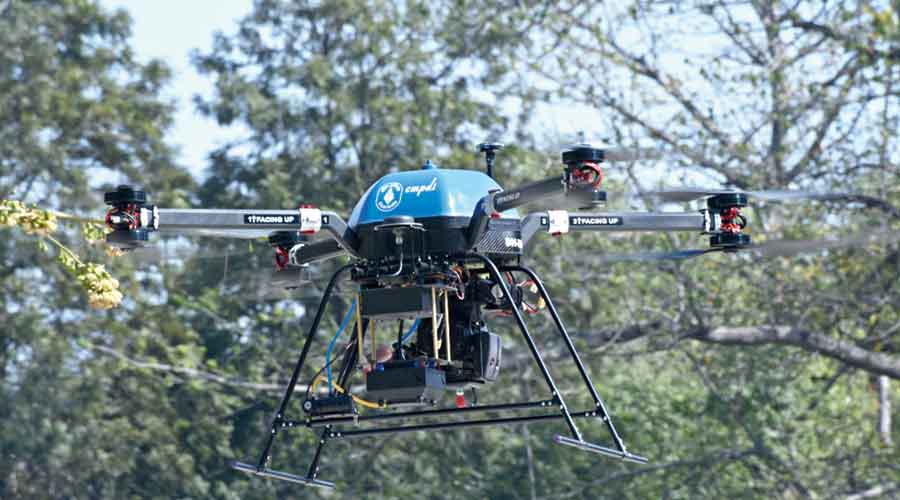The Central Mines Planning and Design Institute (CMPDI), a subsidiary of Coal India Limited, has started procuring drones that it thinks will help detect spots of underground coal fire more accurately.
The CMPDI has already procured a drone that was also test-flown in Ranchi presence of CIL chairman Pramod Agarwal last week and expecting another soon.
“Another unit is expected to delivered by mid-March and the total cost involved would be about Rs 4 crore,” informed Shekhar Saran, chairman cum managing director of the CMPDI.
“The thermal sensors fitted to the second unit will help detection of spots of underground fire more accurately,” he added.
At present, such underground fire spots are detected through remote sensors using satellite images that have less resolution compared to those to be generated through drone, he further informed.
“But the drone sensors will help receive thermal data with 1.86-cm pixel resolution that will help more accurate detection of spots where underground fire exists,” he elaborated, adding that would be possible through mapping of thermal anomaly.
The high-resolution optical cameras on board the drone will also be used for generating optical images of ortho-photo mosaic of plantation studies, settlement mapping and various other applications, Saran further informed.
The drone that was test-flown will help volumetric measurement in case of in-site excavation, overburden dumps, coal stocks etc through its Lider sensors, the CMPDI said, adding that would also be used for estimating height of trees, assessing vegetation and accurate terrain mapping.
Lider sensors work on a method for measuring distance by illuminating the target with laser light and measuring the reflection with a sensor.
The CMPDI became the second public sector undertaking of the country after Central Warehousing Corporation to receive the Bureau of Indian Standards certification for the anti-bribery management system, the CMD further informed, adding the licence issued will be valid for four years till January 17, 2024 and will be renewed after a detailed review.
“We adopted a cashless-faceless-paperless work culture that helped us eliminate any possibility of bribery and earn this prestigious certification,” Saran added.











